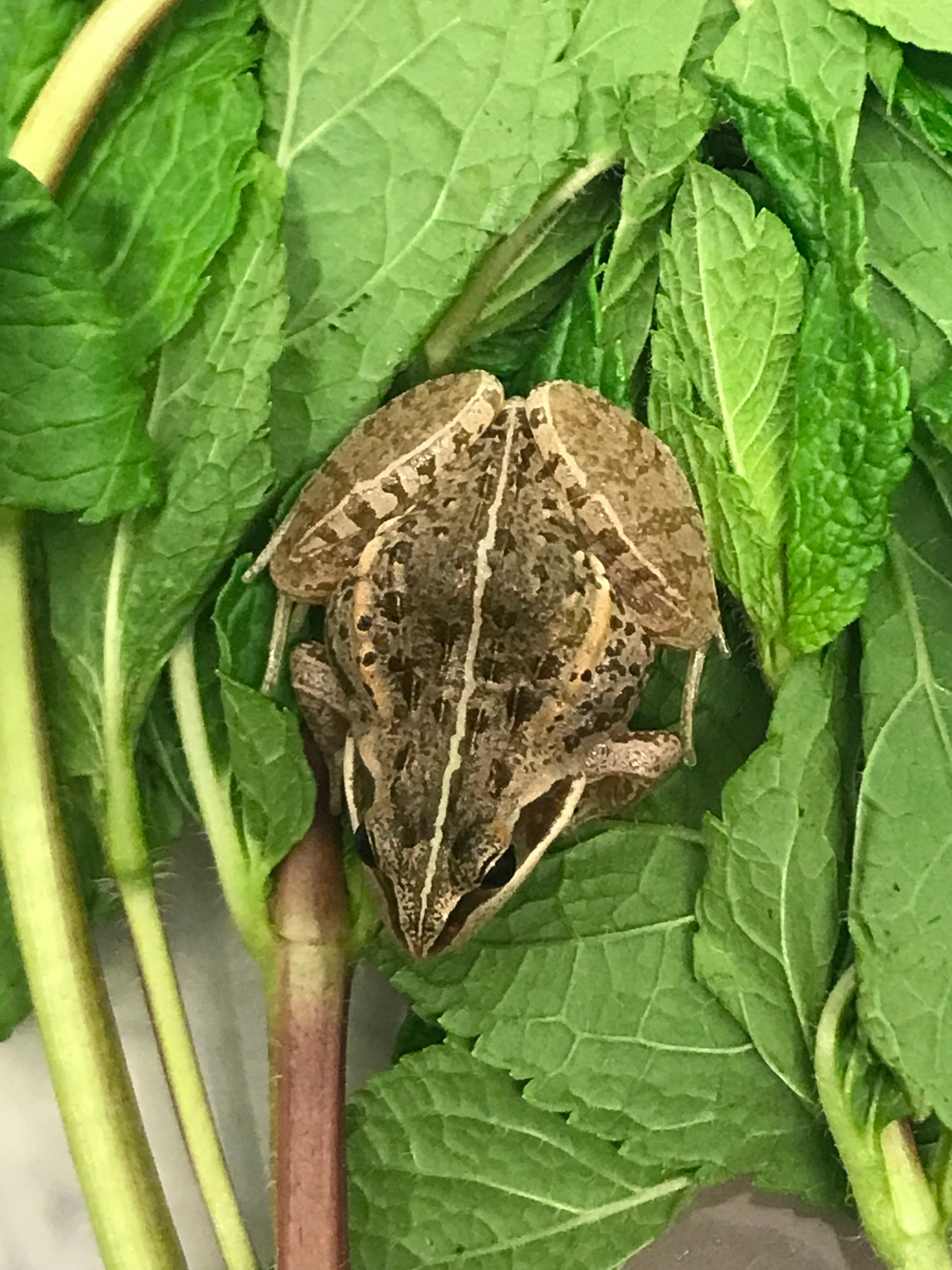Frog makes 6,000-mile trip from Africa in bag of mint
The frog - named Minty - is being cared for by RSPCA inspector Lucy Green, who has tried to establish what species he is

Your support helps us to tell the story
From reproductive rights to climate change to Big Tech, The Independent is on the ground when the story is developing. Whether it's investigating the financials of Elon Musk's pro-Trump PAC or producing our latest documentary, 'The A Word', which shines a light on the American women fighting for reproductive rights, we know how important it is to parse out the facts from the messaging.
At such a critical moment in US history, we need reporters on the ground. Your donation allows us to keep sending journalists to speak to both sides of the story.
The Independent is trusted by Americans across the entire political spectrum. And unlike many other quality news outlets, we choose not to lock Americans out of our reporting and analysis with paywalls. We believe quality journalism should be available to everyone, paid for by those who can afford it.
Your support makes all the difference.A frog that took a 6,000-mile trip from Africa to Northumberland in a bag of fresh mint is being rehomed.
He was discovered after being sold by a fruit and vegetable store in Corbridge, and had been hidden in a sealed bag of the leaves imported from Ethiopia.
The shop owner contacted the RSPCA after a customer made the unusual discovery at home.
The frog - named Minty - is being cared for by RSPCA inspector Lucy Green, who has tried to establish what species he is. She emailed a picture of the frog to a specialist exotics centre in West Yorkshire, where he will eventually be looked after.
Ms Green said: “I have an exotics set-up at my home and Minty’s been fine under the lighting and heating.
“He’s fine, he’s been eating well and he’s certainly not skinny.”
The RSPCA said it receives calls every year from people who have found frogs, geckos or other lizards either in their luggage after a holiday or in foodstuffs from abroad.
The charity said it is unlikely it would be able to return them to their natural habitat and they are usually rehomed with specialists.